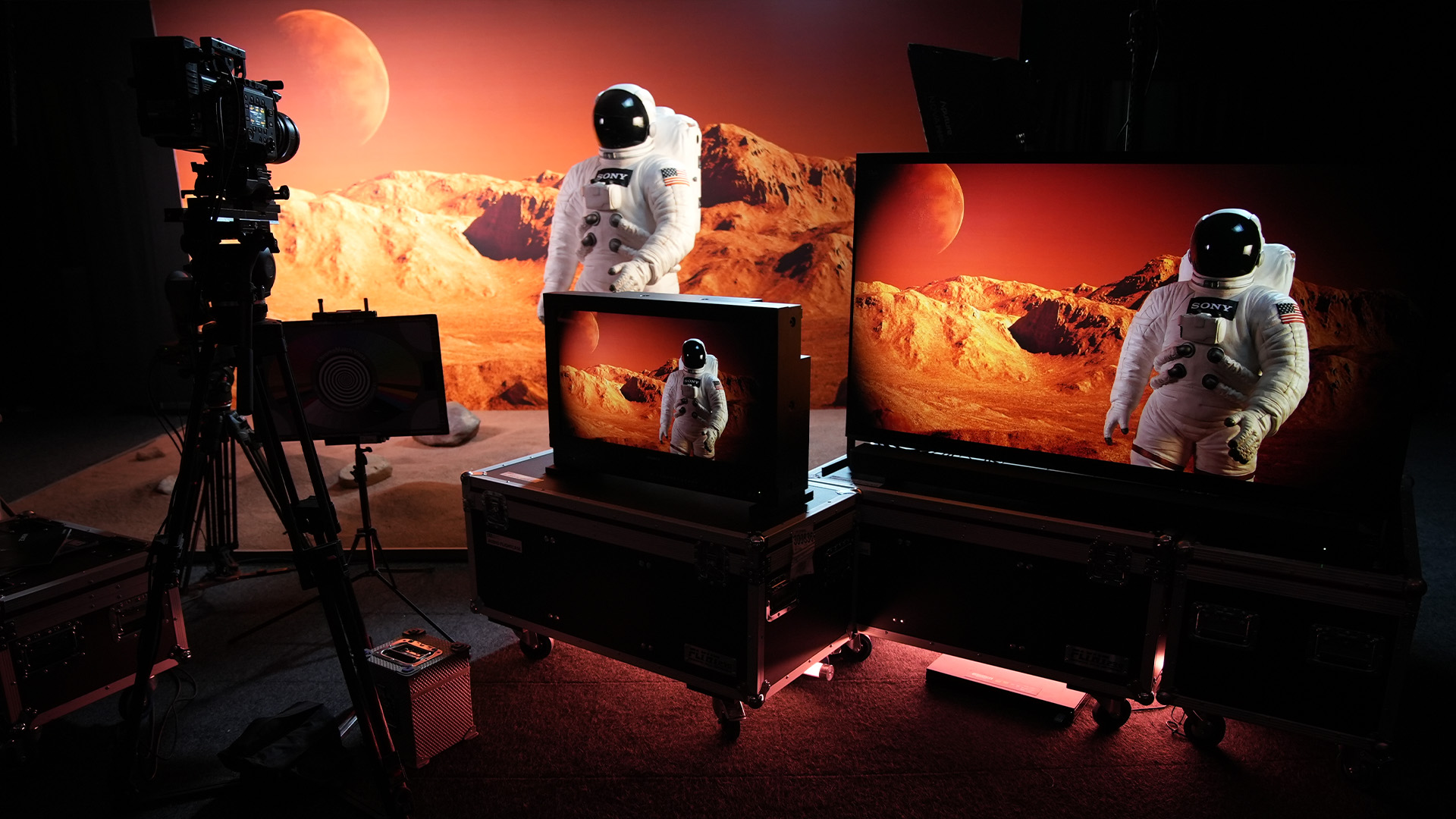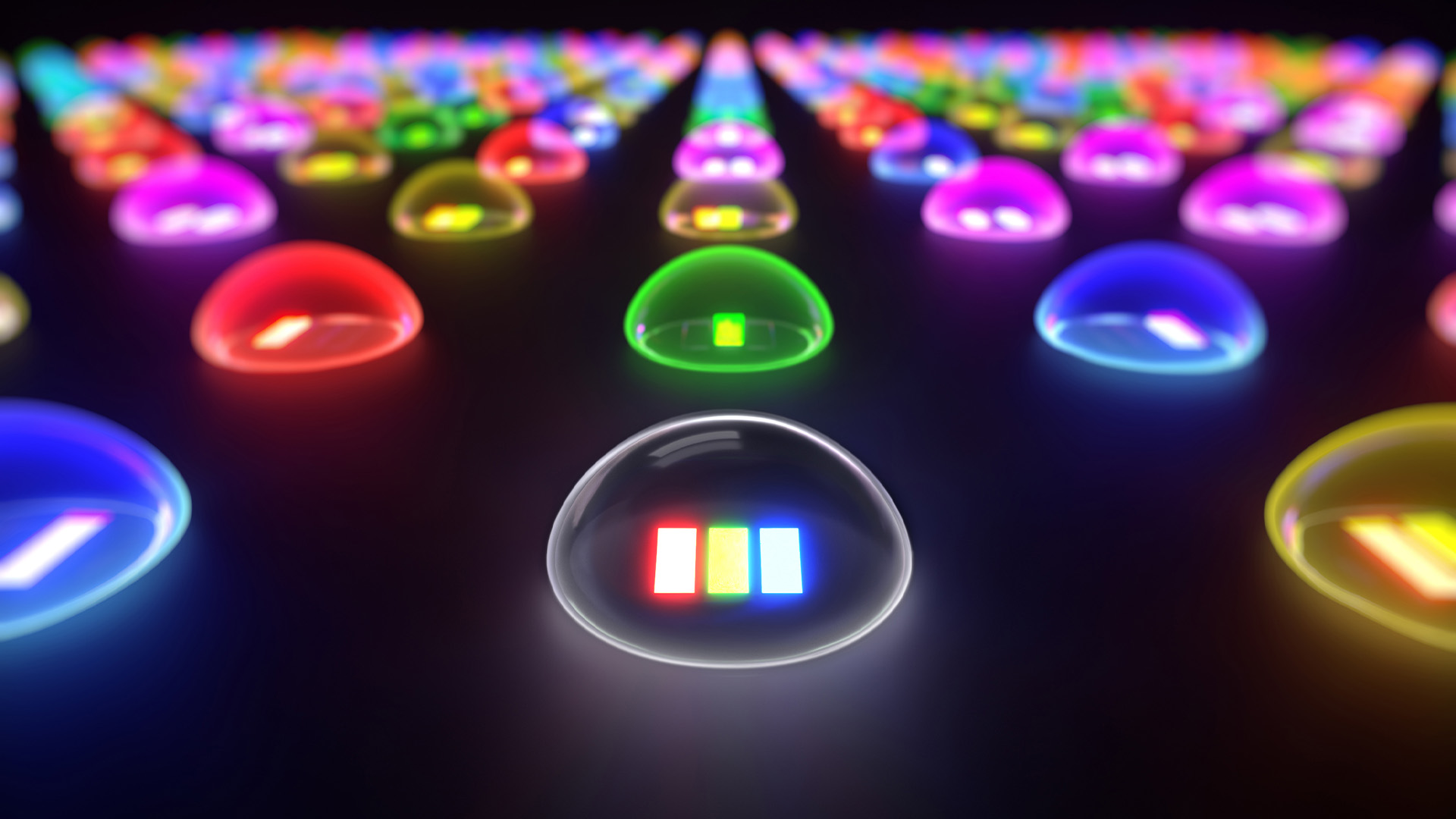I saw the fanciest TV of my life a couple of weeks ago, and it might have changed everything
Uh oh, am I going to upgrade?!


A couple of weeks ago I was wandering around the still under-construction halls of IFA in Berlin, surveying what's one of the biggest tech conferences in the world a little before it was actually ready to welcome in the public. It's a fascinating time to see this sort of event being built, not least because it really underlines just how huge an undertaking it can be to build a single stall, let alone the whole thing.
I was there with Sony, though, so while I was curious to see what else was going to be on show, there was a single tech demo that really preoccupied me. Unlike some other attendees, it was my first time seeing the tech in question, too.
Sony has been talking about its RGB Mini-LED tech for a while, along with basically all the other big TV makers on the market, but getting your eyes on the stuff has proved a slower process. Everyone and their nan was talking about this type of panel back at CES, but now it's starting to look like people could potentially buy one (at a crazy price) next year.
Sony's demo of its panel wasn't long, but it took in enough examples to be informative, and unlike some other brands, it was confident enough to put the new panel right alongside some established highlights from recent years. That was pretty easy to understand once the demos got into full swing – it doesn't take long to see how this could be the future of TVs.

The advancement is simultaneously extremely technical and easy to explain, because of the "RGB" in the name – where existing (very impressive) Mini-LED televisions use a large array of blue-light LEDs that can be filtered to the colour spectrum needed, RGB Mini-LED panels replace each blue LED with three tiny lights: one red, one blue and one green.
This gives the panel the ability to get a wider range of colours mixed, but also lets it do so much more brightly, and the proof is in the pudding when you see them side by side. Sony's panel was extremely bright, and with all of the TVs in their "Vivid" mode, it was honestly a little retina-burning at times, in a good way. TV demos have a tendency to be in a dark room, for obvious reasons of contrast and light conditions, which can make them slightly dazzling.
So, with colour and brightness that can't really be matched by anything on the market right now, and blacks that rival the best OLED TVs, why aren't we all gearing up to buy an RGB Mini-LED TV as soon as possible? Well, the short answer is twofold: pricing and availability.
Get all the latest news, reviews, deals and buying guides on gorgeous tech, home and active products from the T3 experts
Although the tech has been in discussion for a good year now, the race to be the first to market is still ongoing. Sony almost certainly won't win it, either, since it's aiming to be the best on the market instead – taking a bit more time and ensuring that its dimming technology, long a strong suit, can give it the edge on its rivals when it's ready. That's its line, but it doubtless would still prefer to be both best and first, if it could.
Regardless of when the panels are available for normal folks to buy (and it'll be in 2026, by all the signs), the other question is how much they'll cost. Whenever cutting-edge new displays are unveiled, the first couple of models tend to be prohibitively expensive. While we're not bracing ourselves for £30,000 TVs here, necessarily, sets that sit north of £5,000 are very possible.
That immediately makes them niche for now, so if you're sitting with a relatively recent OLED wondering what all the fuss is about, don't panic. You should have several years to go before your TV starts to look remotely long in the tooth (regardless of Dolby Vision 2).

Max is T3's Staff Writer for the Tech section – with years of experience reporting on tech and entertainment. He's also a gaming expert, both with the games themselves and in testing accessories and consoles, having previously flexed that expertise at Pocket-lint as a features editor.
You must confirm your public display name before commenting
Please logout and then login again, you will then be prompted to enter your display name.